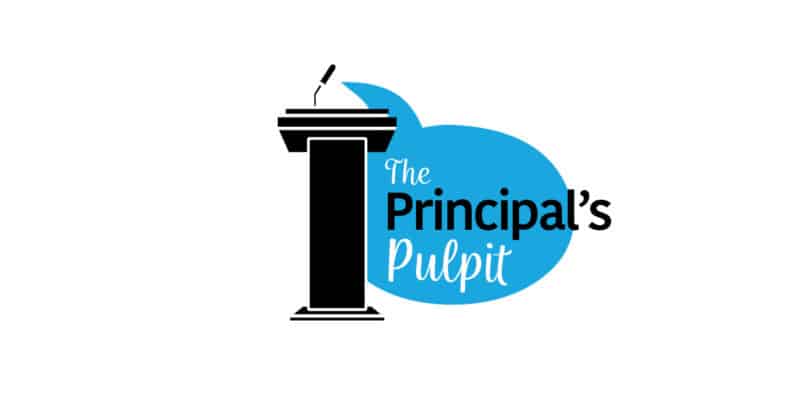by Kate Nicholson
A few years ago, I wrote a school newsletter piece about the previous Sunday’s Gospel, the well-known Scripture reading “The Vine and the Branches” (John 15:1-17).

Kavanagh College principal Kate Nicholson
At the time, when I was listening to this passage and, probably influenced by my plant science background, I remember thinking about the need for the vine to have the right environmental conditions to bear fruit, be pruned and stimulate new growth. And so, I wrote about the analogy where Catholic education is like the quality of the soil that provides the vine with all it needs to thrive and flourish.
I often think about that analogy in my privileged work as a Catholic secondary school principal. Young people, our young vines, are growing up in an environment where they are very exposed to the elements.
Connection, through technology, has the danger of creating an environment of materialism and individualism, and where “if it feels good and makes you happy, then just do it” can become the mantra by which they live.
Many of our teenagers live their lives through an “Instagram lens”, where carefully curated and posed photos cause them to think that their life should be as wonderfully exciting, successful, and happy 24/7, as those whom they follow. Therefore, the downside of our digitally-connected world is that it can create unrealistic expectations and, in my opinion, has influenced the resilience and mental health of our teenagers. Instead of the outward-looking view we would expect from global connection, it can cause our children to become very inward-looking and dissatisfied with what they see.
Catholic education, done well, can provide a healthy protection against these damaging environmental elements to which our young people are exposed. Faith in action within our schools gives an alternative view of the world around us. Looking outward, putting others first through social justice actions, encouraging hope, learning to think critically, and keeping a “what would Jesus do” lens on everyday life, gives our young people protection against the elements, and allows them to grow stronger in the face of challenges, creating a more positive view of themselves. Schools have become the “go-to” for governments wanting to create social change, and the work schools are being asked to do — to
help fix social issues and produce better future communities — grows every year. While some in education may complain about these requests taking time away from the curriculum, Catholic schools consider that creating a world with respect for ourselves, each other, and our environment, is our mission.
Catholic schools’ pastoral care is second-to-none, and the belief that every child is made in the image and likeness of God influences the way we prioritise relationships, belonging, identity, and inclusiveness. Many of our schools become a successful “fresh start” for those who arrive somewhat battle-scarred from previous experiences. Rather than conflicting with the aim of delivering curriculum, our high-quality pastoral care becomes the foundational support that increases academic outcomes. Media reports often point to the fact that Catholic secondary schools in New Zealand are consistent in providing excellent academic results, as compared with state schools. What they omit to report, because it is not always visible from the outside, is that our faith-based pastoral care is the “how” of these excellent academic outcomes.
We are about more than curriculum and assessment. We are about contributing to the Kingdom of God on earth. We are about providing the nutrients, the water, the soil structure, and the protection against the elements, that will allow the young vines in our care to grow strong, flourish and bear much fruit.
Kate Nicholson is principal of Kavanagh College, Dunedin.

Reader Interactions